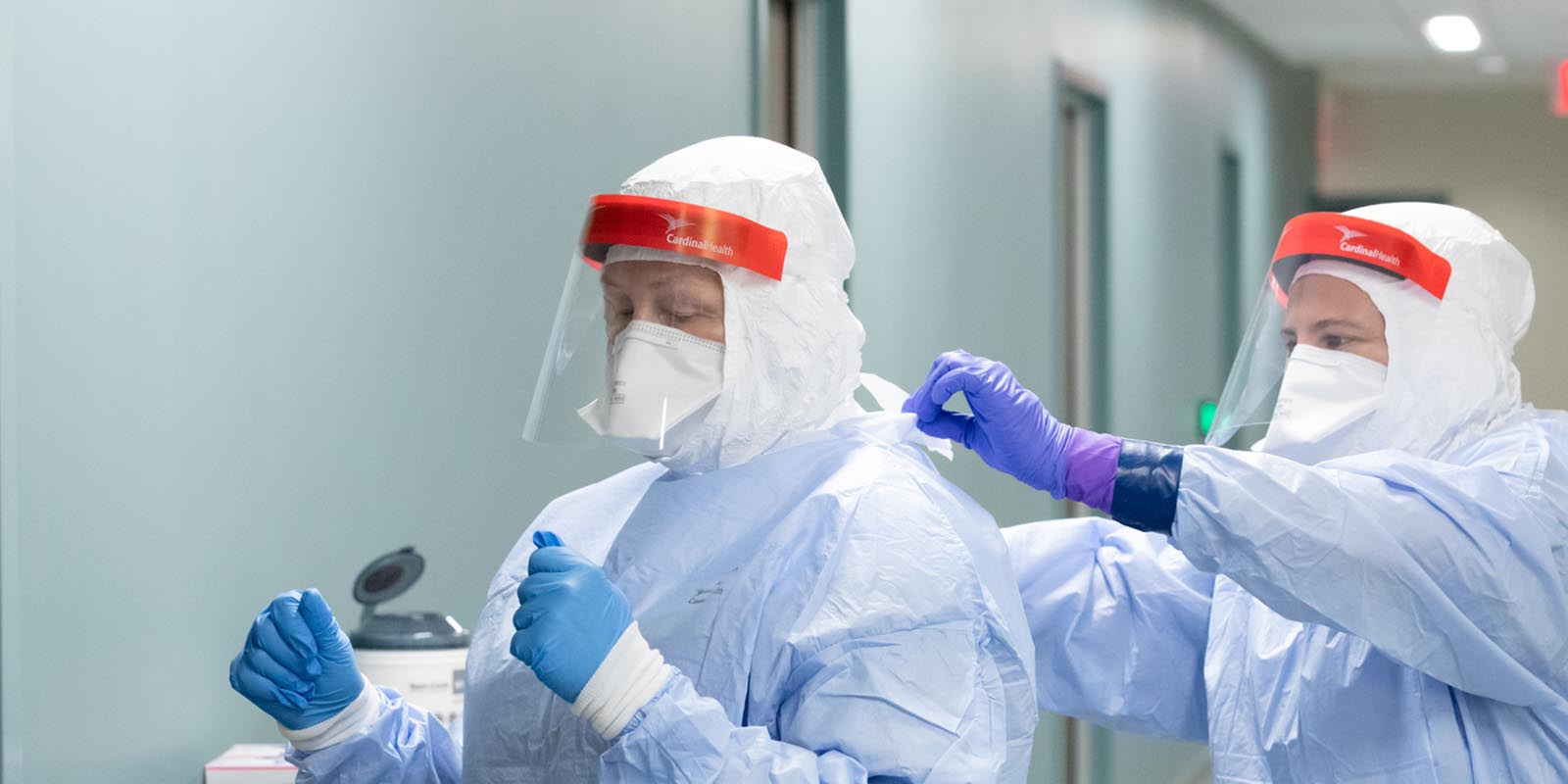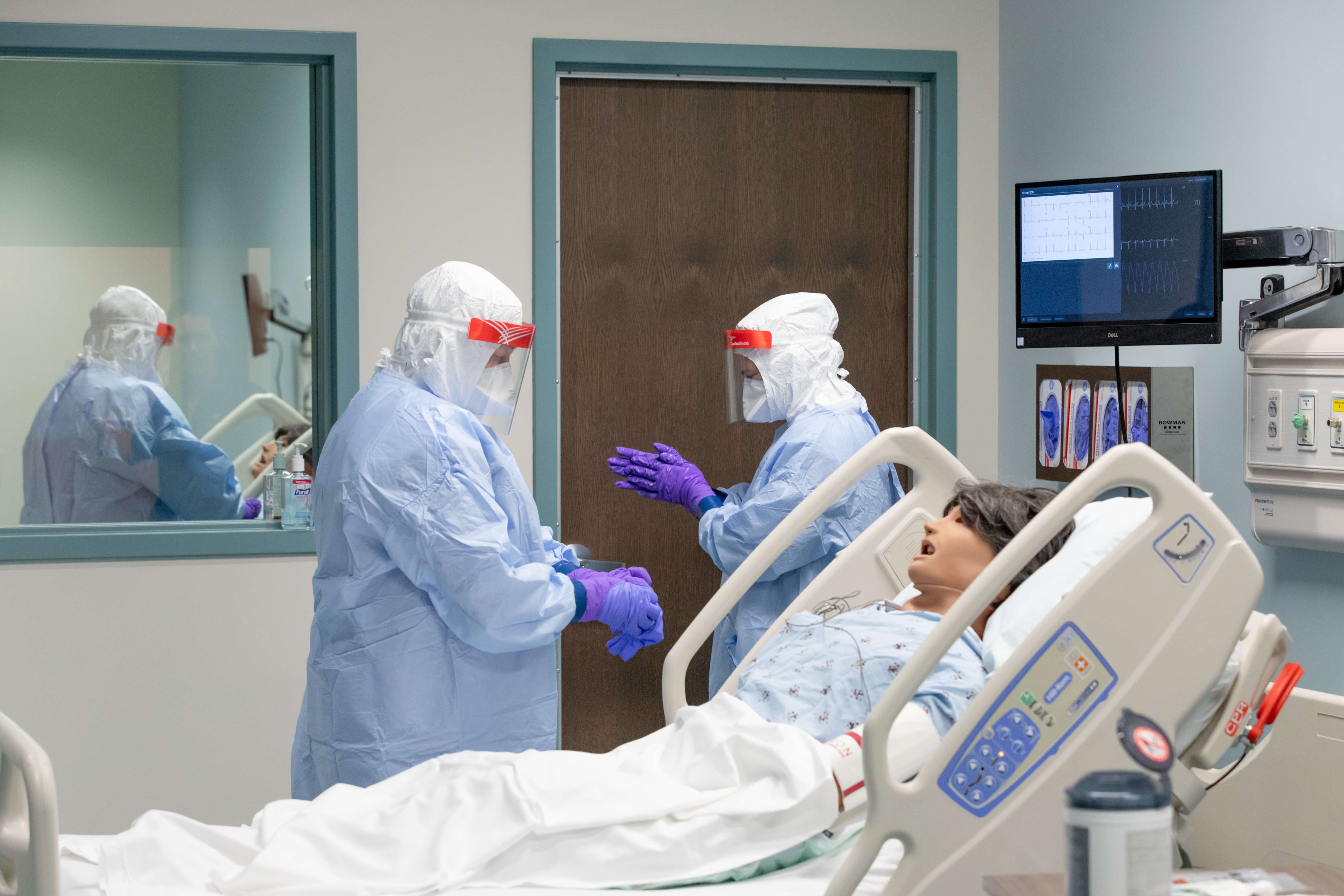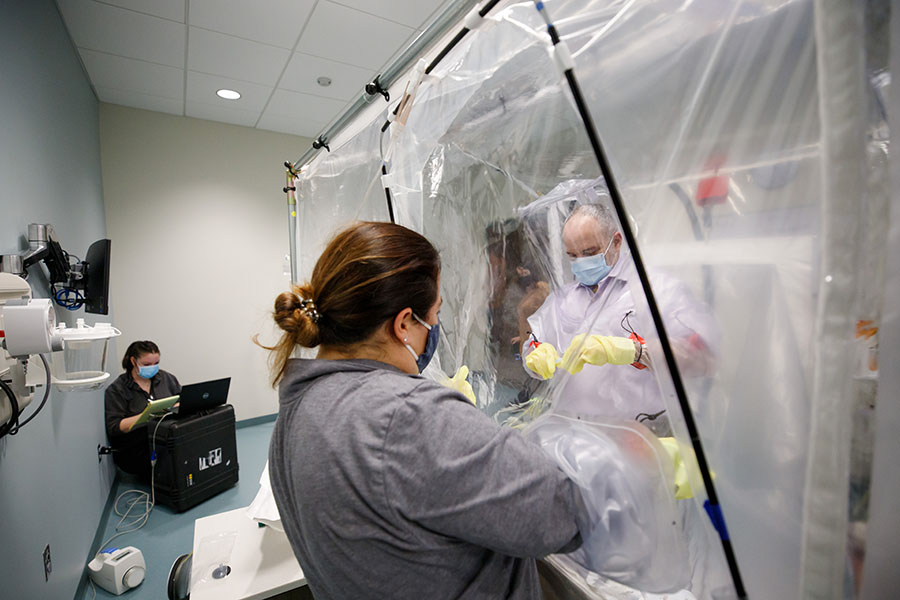
Clinical Operations
A battle-tested go-to resource on hazards.
The Global Center for Health Security is the premier U.S. institution for management of high-consequence infections and hazards.Our clinical capabilities include biological, chemical, burn, and radiation domains. This is in part due to the GCHS having the nation's largest biocontainment unit, the only federal quarantine facility, and sophisticated on-site labs.
Nebraska has become the global go-to resource on isolation and biopreparedness thanks to a battle-tested, interdisciplinary team that pioneered and set the standard for dealing safely with infectious pathogens.
Our clinical domain includes areas of biological, chemical, burn, and radiation.
Our Clinical Capabilities
The clinical capabilities of the Global Center for Health Security offer extensive experience and skills for dealing with high-consequence infections and hazards. The Global Center is leading clinical preparedness, with the team hailed for its bravery for treating patients during the 2014 Ebola outbreak and the COVID-19 pandemic and one of the first state public health labs in the country to handle Ebola and COVID-19 cases.
The center is home to the nation's only federal quarantine center and one of the nation's largest biocontainment units. From monitoring potential exposure to treating high-consequence infections, the Global Center for Health Security is on the front lines.
We are using our expertise to fight Highly Hazardous Communicable Diseases where they start and save lives around the world and at home. The Global Center for Health Security is creating a network to prepare for and respond to high-consequence infections. This work includes a clinical trials network and rapid exchange of information during international pandemics, as well as improving the treatment and survival of sepsis in Africa and Asia.

Explore our clinical programs.
GCHS Domains
Learn more about our domains.
